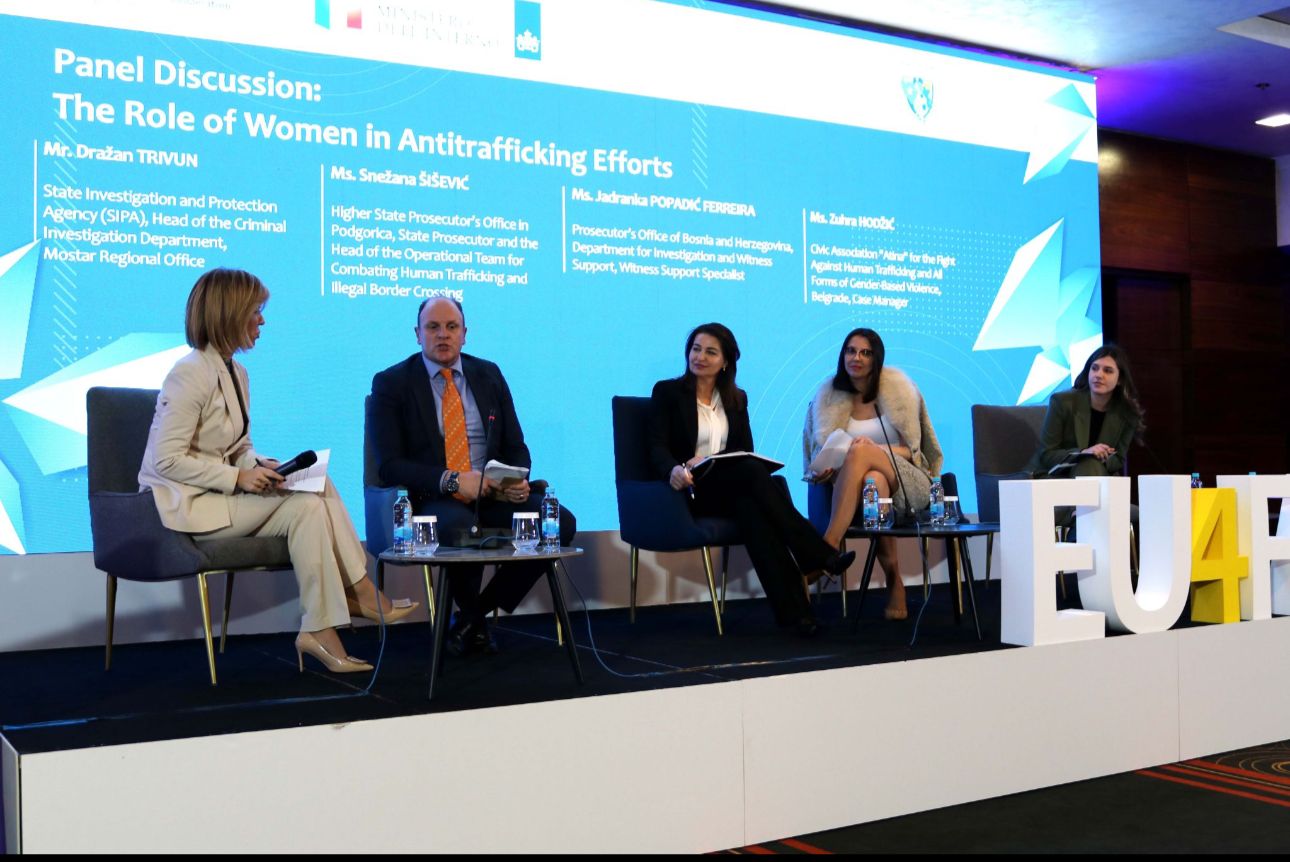Hotline: +381 61 63 84 071
Together for justice: Women of the region building a safer response for victims of human trafficking

Together for justice: Women of the region building a safer response for victims of human trafficking
At the regional conference “The Role of Women in Law Enforcement: Women Leading Change in Combating Human Trafficking in the Western Balkans,” held on February 5–6, 2025, in Sarajevo, the spotlight was placed on women – experts, activists, and professionals who are shaping a safer, fairer, and more humane response to human trafficking every day.
The conference, organized within the framework of the project “EU Support to Strengthening the Fight Against Migrant Smuggling and Trafficking in Human Beings,” brought together numerous representatives of institutions from Bosnia and Herzegovina, the European Union, and international organizations, as well as regional actors from the judiciary, police, social services, and civil society. The two-day event focused on empowering women within the security sector and highlighting their role in creating systemic responses to one of the most severe forms of organized crime — human trafficking.
NGO Atina, an organization that has been supporting women and girls who have survived human trafficking and gender-based violence for more than two decades, was represented by Zuhra Hodžić, a social worker and activist with many years of experience in the field. Speaking at the panel titled “The Role of Women in Combating Human Trafficking,” Hodžić shared insights from her work with survivors, highlighting the complexity of their journey toward recovery and independence.

“Identification is only the beginning. The real challenges come later — when women try to rebuild their lives, facing systemic barriers, poverty, institutional mistrust, and trauma,” emphasized Hodžić.
She specifically pointed out the role of women who work directly with survivors in specialized NGOs, social welfare institutions, the judiciary, and healthcare services. Through understanding, experience, and the ability to build trust, these women offer something that even the best laws cannot guarantee—a safe space for recovery and empowerment.
“Without a stable environment and comprehensive support — including housing, education, employment, healthcare, psychological services, and legal protection — women remain at risk of re-victimization,” Hodžić underlined.
She added that the key lies in a gender-sensitive, solidarity-based, and sustainable support system that does not impose solutions but empowers women to make life decisions.
The conference participants agreed that women in the security sector, especially those with direct experience working with victims, are a driving force of change — they are the bridge between systems and the individuals those systems have too often failed. Their knowledge and experience are essential for ensuring that the fight against human trafficking is practical, sustainable, and victim-centered.












 FACEBOOK
FACEBOOK TWITTER
TWITTER YOUTUBE
YOUTUBE